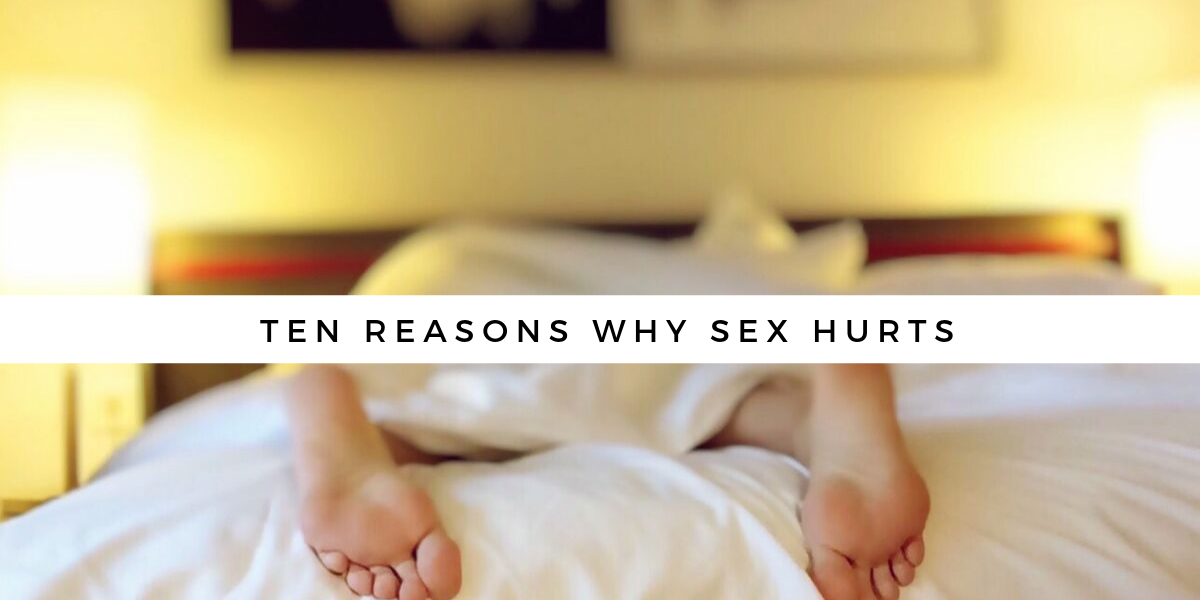Ideally, sex is a loving connection between two people – so what does it mean when sex hurts?
You’re not in the mood.
Sometimes, you are too tired or just not up to it. You can choose to say no at these times, or alternatively, you can choose to get into the mood. Focus on emotional connection and lots of foreplay – or only foreplay.
Your body is telling you no.
Pain with sex can be your body’s way of telling you something’s not right. There are many reasons for this, including emotional. If you’ve had negative sexual experiences or a history of trauma to this area, pay attention to your body’s signals.
Your libido is shot.
Sexual pleasure and libido often go together. While it is possible to get yourself in the mood and enjoy it even if your sex drive is low at the outset, it makes more sense to take steps to increase your sex drive.
Medication is having an effect.
Lots of meds can reduce libido. Are you on the Pill? On antidepressants? Ask your pharmacist if this could be killing your sex drive.
It’s not the right time of month.
At certain times of month, you may be more in the mood than others. Vaginal dryness is also normal for many women at certain times of month. Aim to learn more about the effect of your hormones on the environment down there.
Blame your hormones.
A drop in oestrogen tends to lead to vaginal dryness. After a while, this can lead to deterioration in the tissue quality, sometimes called vaginal atrophy or atrophic vaginitis. This is common after menopause, and when breastfeeding.
Things aren’t right down there.
If you have thrush or a urinary tract infection, things definitely won’t feel good with sex. Get this checked out and treated.
Your IBS is playing up.
The bowel and the vagina ‘’speak’’ to each other, so a flare-up of your irritable bowel can have the effect of putting the vagina ‘’off limits’’.
You’ve got vaginismus.
When your vaginal muscles are in spasm or tense up and cause pain with sex, this needs professional treatment. A pelvic floor physiotherapist with specific experience with vaginismus can help you.
You’ve got ‘’provoked vestibulodynia’’.
Vestibulodynia, sometimes called vulvar vestibulitis, tends to overlap with the vaginismus described above and with a condition called vulvodynia. This is a highly complex condition that needs treatment by an experienced and qualified clinician.
Of course, this is not a complete list, but it may give you a starting point. Understanding the cause allows you to take action to help. Some causes are simple and easy to fix, while some are more complex.
If your relationship is being affected by painful intercourse, we strongly recommend you seek professional help, including a medical assessment. In the meantime, it might help to explore the possibilities listed.

